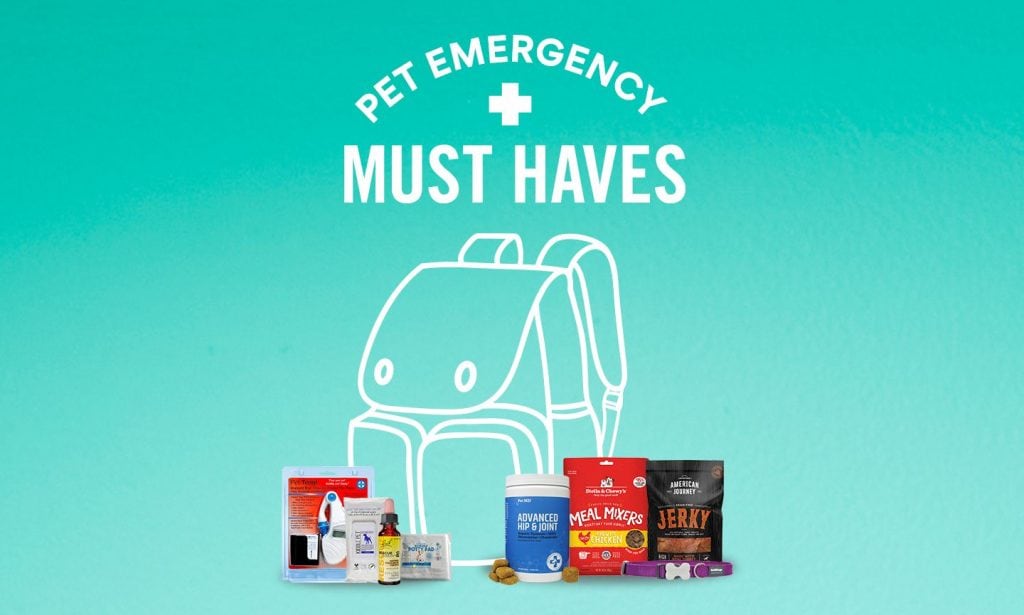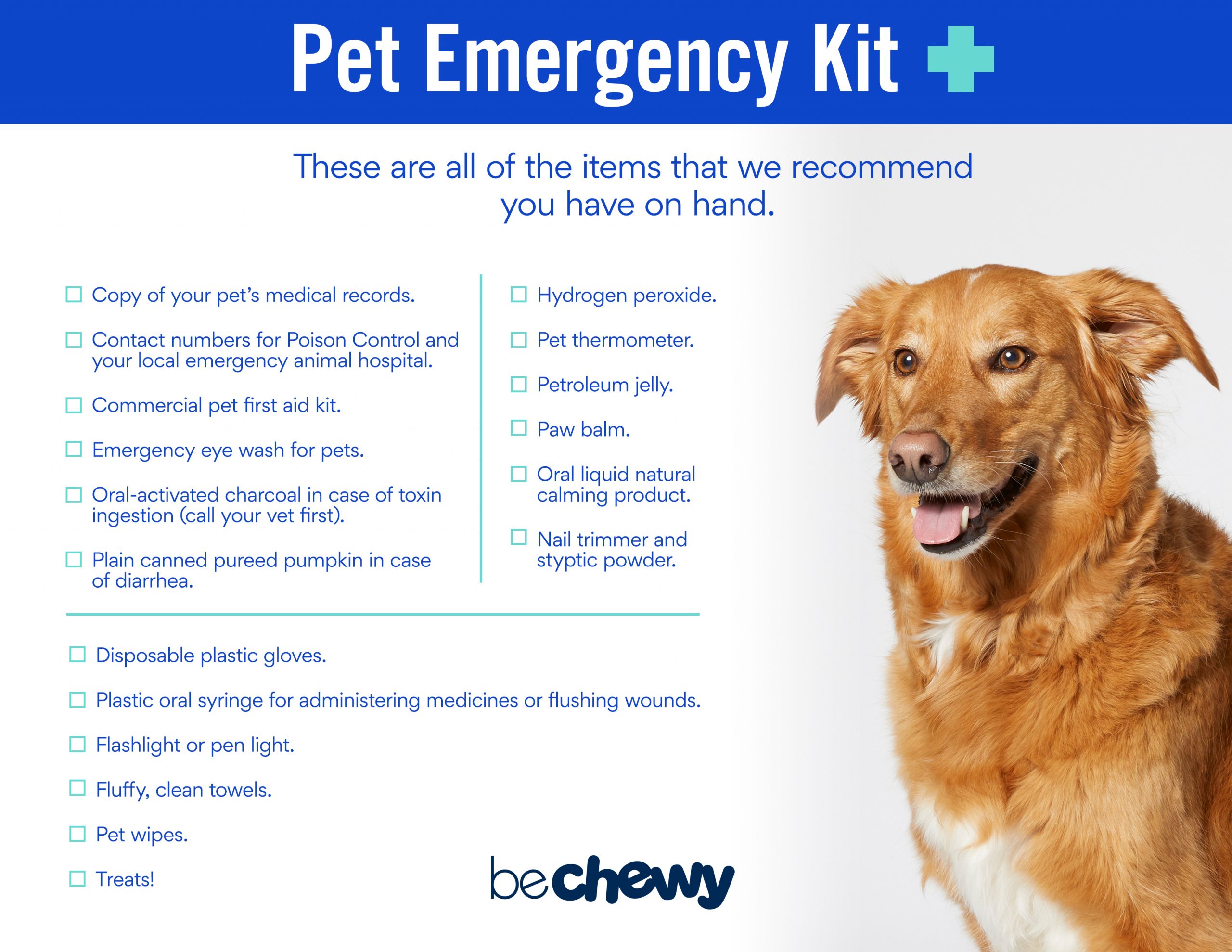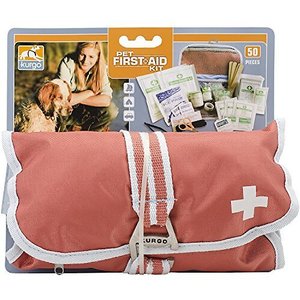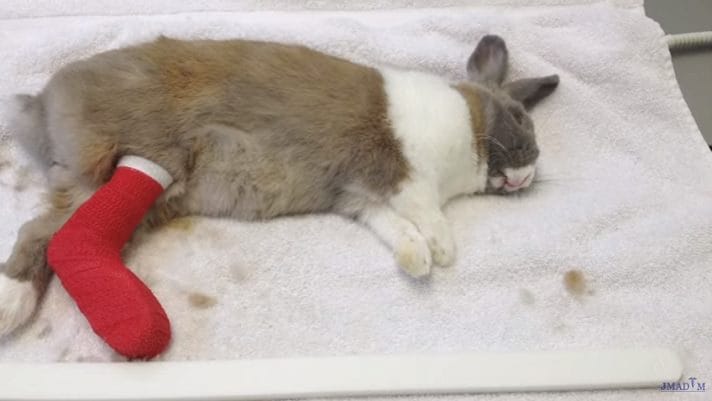Do you have a pet emergency kit? Right now, before an emergency or natural disaster, take the time to gather items for a pet emergency kit. Having what you need on hand can help you respond quickly and appropriately when needed. It's not a huge list, and there is nothing you can't find at a drug store or online in the case of some pet specific items.
Here’s what pet parents should have on hand in a pet emergency kit to be prepared for most emergency situations. A large, flat plastic container will hold most of these items.
- A copy of your pet’s medical records (not just a folder of receipts)
- Emergency contact card with the ASPCA Animal Poison Control Center Phone Number—(888) 426-4435—and that of your local emergency animal hospital on it
- A commercial pet first aid kit, like this kit from Kurgo, stocked with non-stick pads, bandage gauze, alcohol swabs, pressure wraps, small tweezers, blunt scissors and bandage tape, among other items
4. Oral-activated charcoal, administered in case of toxin ingestion (call your vet first)
5. Emergency eye wash, like Vetericyn's eye wash, for rinsing out foreign matter
6. Hydrogen peroxide, which can be used to do the initial cleaning of a wound (only once, not daily) or, if advised by your veterinarian, to induce vomiting
7. Plain canned pumpkin (the puree, not the pie filler), like Nummy Tum-Tum, in case of diarrhea
8. A pet thermometer, like Pet-Temp’s ear thermometer
9. Petroleum jelly, to use as a lubricant for a thermometer, or to cover a wound under a bandage before you seek treatment
13. A couple pairs of disposable rubber gloves, in case your pet is injured and has an open wound, to keep you and your pet infection-free
14. Plastic oral syringe, like this one from Oral Syringes, for administering medicines or flushing wounds
15. Flashlight or pen light
16. A fluffy towel, to wrap scared kitties in or warm cold puppies up
17. Pet wipes, to help keep your furry friend clean
18. Treats, to give a little comfort in a scary situation
Is Your Pet on Prescription Meds?
If your pet is on prescription meds, it’s recommended to keep at least a two- to four-week supply of the medicine on hand in case of an emergency, an evacuation or an illness. This includes heartworm, flea and tick preventive medications and any prescription diets that your pet has been prescribed.
Have Extra Pet Food and Litter, Too
Have an extra bag of kibble or case of cans of your pet’s regular diet on hand at all times, as well as extra litter for your kitties.
While you’re getting supplies together, it’s also a good time to check pet tags and microchips to ensure all are up to date. It's also a good idea to learn CPR.
By taking a little extra time to take these steps, including gathering all of these supplies while you’re calm and able, you’ll save yourself a lot of anguish if an emergency strikes.
Our last bit of advice? Check your pet emergency kit twice yearly to ensure no products have expired and to update your pet’s medical records.
More Ways to Stay Safe:
Share:





















